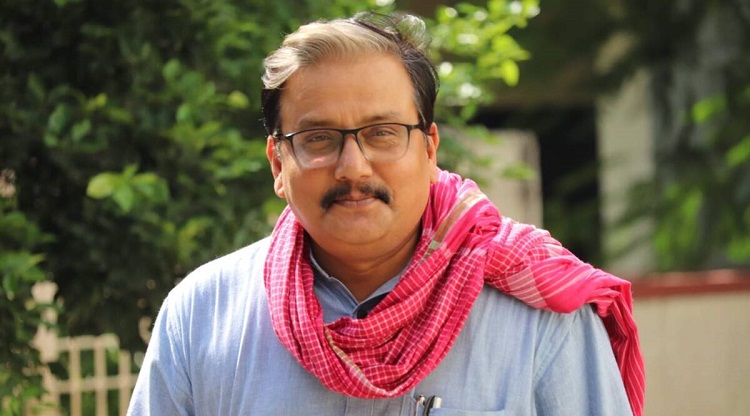
New Delhi: Disagreeing with the current collegium system, RJD member of parliament from Rajya Sabha Manoj Jha said that with the new changes, the government needs to bring the Judicial Appointments Commission (NJAC) bill.
Manoj Jha said that the Judicial Appointments Commission (NJAC) bill needs to be made in line with the Constitution so that the participation of all sections of society is ensured in judicial appointments.
Jha also questioned the NJAC bill brought by the central government in 2014, rejecting the existing collegium system and said that there was no provision for reservation for Scheduled Castes, Scheduled Tribes and Backward Classes in NJAC.
There is a tussle between the central government and the judiciary since 2014 regarding the collegium system.
On December 8, Minister of Law Kiren Rijiju said that there is no such proposal to reintroduce the NJAC with suitable modifications.
While responding to the several questions raised by politicians Mallikarjun Kharge and Dr John Bittas in Parliament, Law and Justice Minister said, the appointment of the Judges of the Constitutional Courts is a continuous, integrated and collaborative process between the Executive and the Judiciary.
Rijiju also said that the appointments of judges require consultation and approval from various constitutional authorities both at the state and central levels. Government appoints only those persons as Judges of High Courts who are recommended by the Supreme Court Collegium.
Giving the details, Rijiju said, "As on December 5, 2022, there is one proposal for the appointment of a Supreme Court Judge and eight proposals for the appointment of the High Court's Judges recommended by the Supreme Court Collegium are pending with the Government."
"Further, there are eleven proposals for the transfer of High Court Judges, one proposal for the transfer of a Chief Justice and one proposal for the appointment of the Chief Justice of a High Court recommended by the Supreme Court under consideration of the Government," he said.
Rijiju also said that a total of 256 proposals have been remitted by the Government to the High Courts.
"During the last five years, a total of 256 proposals have been remitted by the Government to the High Courts. The proposals are remitted to the concerned High Courts on the advice of the Supreme Court Collegium," he added.
On the question of the number of vacancies as of the date in the Supreme Court and High Court, the Law minister stated that as on December 5 against the sanctioned strength of 34 Judges, 27 Judges are working in the Supreme Court leaving seven vacancies.
"In the High Courts, against the sanctioned strength of 1108, 778 Judges are working leaving 330 vacancies," he added.
In 2014, the National Democratic Alliance government brought the National Judicial Appointments Commission (NJAC) Act in an attempt to change the system of appointment of judges.
Vice President Jagdeep Dhankhar recently passed a certain remark on the 99th Constitutional Amendment Bill paving way for the National Judicial Appointment Commission (NJAC) which was undone by the Supreme Court in 2015. (ANI)







